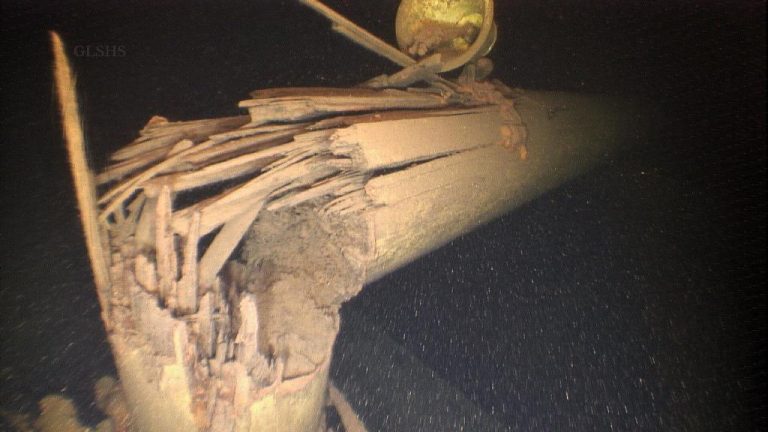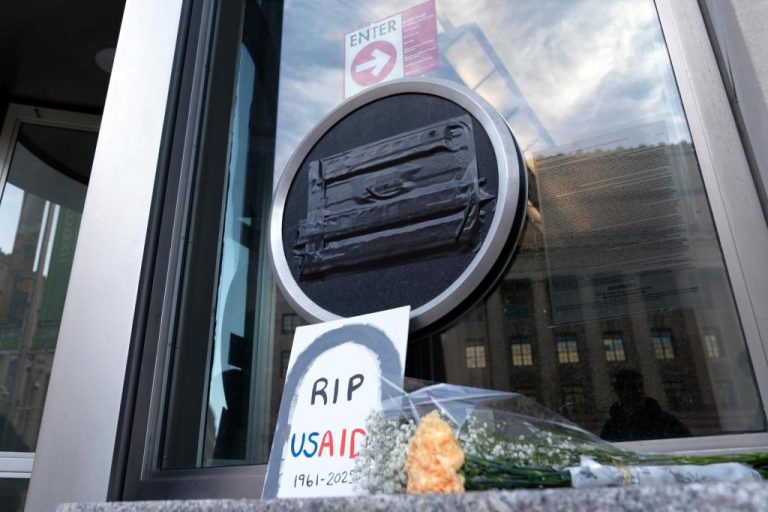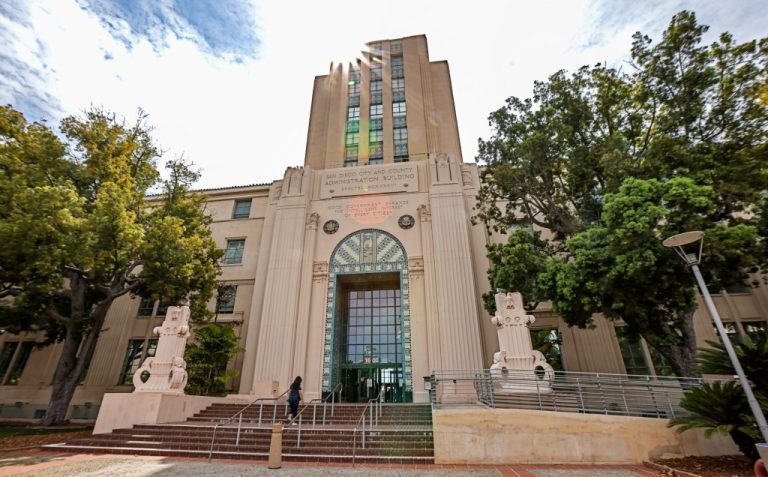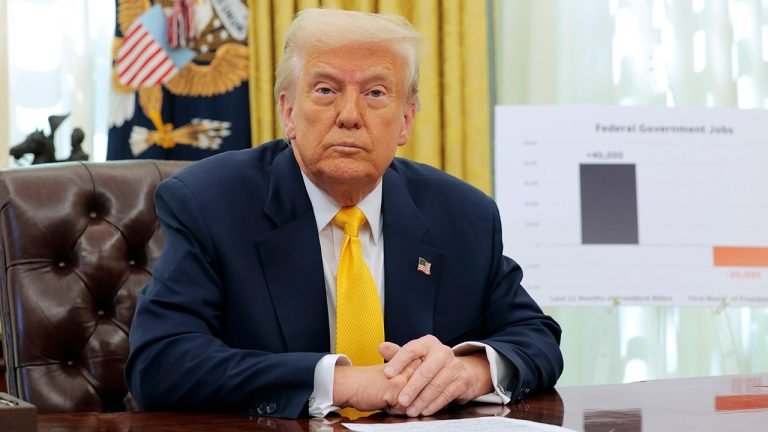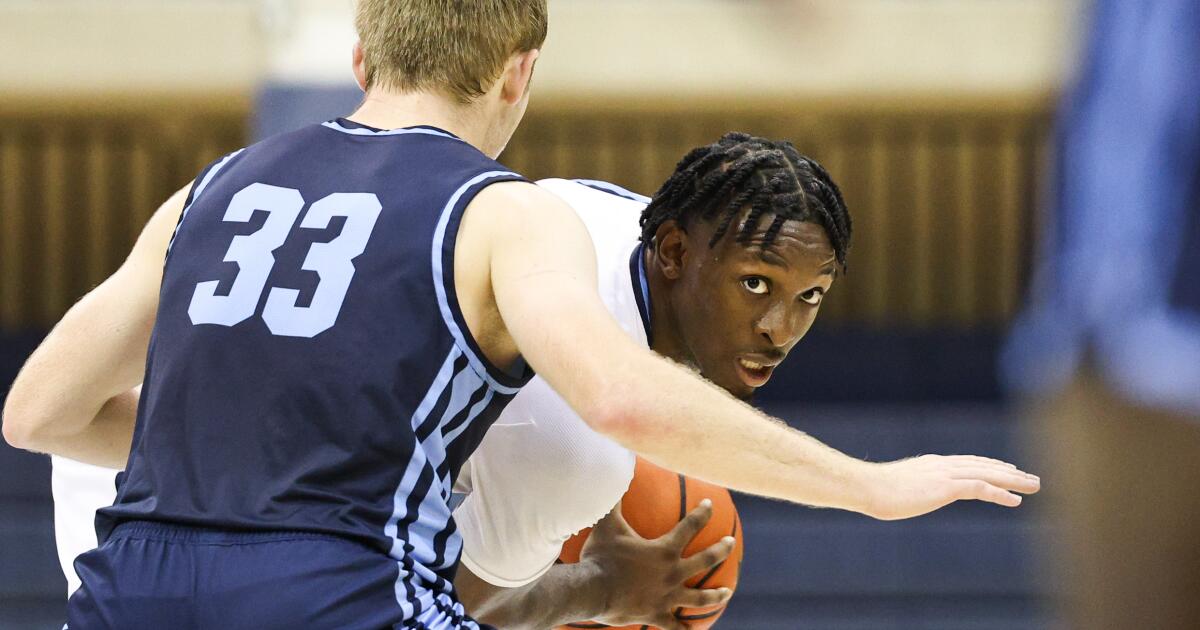
Wayne McKinney III owned secrets. They were his alone, life-and-death stuff bottled up and bear-hugged until he felt the time was right to share.
Few knew how his father Wayne was gunned down while riding in the passenger seat of a car near the gritty Crenshaw neighborhood of Los Angeles. It was gang related, according to police. He was 24; young Wayne was 5.
Even fewer knew that he underwent treatment for non-Hodgkin’s lymphoma, a type of cancer originating in the lymphatic system, during the summer of his sophomore year in high school as he transitioned from Portland, Ore., to Coronado.
McKinney’s veins became brittle from chemotherapy. He lost his hair. He bruised easily. Fatigue nagged without mercy. The mental wrestling matches — Would people treat me differently? Would colleges shy away? — exacerbated the physical ones.
None of it, though, had the power to pry a basketball from his hands. The University of San Diego junior loves the game too much to let an onerous universe dictate terms for something so cherished.
As the Toreros prepare to open the season Monday against Sonoma State, McKinney, a co-captain, finally is ready to peel back the layers.
Why now?
“I feel like it’s important to not hide from the past, to be able to open up and tell the truth about something that changed my life,” McKinney said. “As much as it seems a negative, I appreciate what I got out of it and who I’ve become.”

San Diego guard Wayne McKinney III (3) reacts after San Diego guard Eric Williams Jr. (50) hit a 3-pointer to send the Toreros into overtime against Utah State last November.
(Meg McLaughlin/The San Diego Union-Tribune)
Who has he become?
At 21, he’s lived the life of someone three times his age. He’s made mistakes, confronted demons and faced down obstacles that gut, consume and unhinge others.
McKinney is penning a basket-attacking, sweat-soaked love story about a game that is far more than that, about a mother who moved him out of L.A. to the safety of the Oregon suburbs, about a Coronado family that showed care and affection do not always share the same last name.
“Basketball,” he said, “was the energy I needed.”
Childhood amid violence
Growing up as a child on some of the toughest streets of Los Angeles grotesquely twisted the perception of normal. Should it be routine to live amid brawls and gunfire? Should a kid constantly be looking over his shoulder?
His mother, Sheneka James, had McKinney when she was 17, working multiple jobs to keep up. Then she made a decision that altered the course of her young son’s life.
“I remember not really being able to go out anywhere or do anything,” McKinney said. “I’d be inside the house a lot. My mom always protected me and kept me safe. There was a lot of violence outside, whether it was fighting or gun violence. It kind of caused me to mature and grow up early, being cautious of my surroundings and what’s going on.
“That ultimately was why she decided to move to Portland. My mom wanted me out of that environment, thankfully.”

University of San Diego basketball player Wayne McKinney III, shown with his late father Wayne.
(Courtesy photo)
The details of what happened to his father remain hazy, just a handful of emotionless paragraphs in a Los Angeles Times story. His mother kept the toughest parts from Wayne, who was too young at the time to fully process such tragedy.
He learned more, years later.
“He was with one of his friends,” McKinney began, explaining what he had pieced together. “They were stopped at a red light. Someone saw them and thought they were affiliated with a gang. I found out he was shot and killed on the spot. My mother waited to tell me. She didn’t want me to be heartbroken.
“I don’t think I looked in the casket or anything (at the funeral). I was young. I didn’t really understand the gist of what was going on.”
When Wayne’s mother moved the family to the Portland suburbs, unsuspecting hearts awaited.
While playing basketball at a YMCA, Stephanie Ruttert, the mother of one of the girls, invited the kids to play laser tag if parents approved.
“Wayne grabbed my arm and put a phone in my face,” Ruttert said.
McKinney, who lived 45 minutes away in a rougher section of the city, soon was spending weekends with the Rutterts. Bonds forged by an innocent invitation strengthened quickly.
“He’s a lucky kid who has two families that love him,” Ruttert said. “His (birth) mom did the greatest kindness in the world. She allowed him to live with other people. It’s the biggest sacrifice you can make. She put his happiness before hers. She gave him an opportunity to be in a position to be more successful (at a better school).
“But Wayne did the work. He did it. He has a great attitude. Some kids would turn to drugs, alcohol, whatever. He’s a special kid. We loved him the first time we met him. If he played the piano, he’d still be in our house.”

Wayne McKinney III plays in a youth league in Oregon.
(Courtesy photo)
Ruttert’s husband, Doron, filled a void.
“He’s always there for me,” McKinney said. “He’s showed me what it means to be a man in so many ways. Thankfully for him, I didn’t miss out on much, being without a father.”
McKinney began to thrive in his new household.
“Getting to the other side took a while,” he said. “It took me years. It didn’t happen overnight. I stayed thankful for what I had.”
Quickly, though, a new and scary challenged loomed.
‘Am I going to be OK?’
When the Rutterts decided to move to Coronado with McKinney in tow, a call shattered the calm. Months earlier, he had his tonsils removed. They discovered non-Hodgkin’s lymphoma.
In the summer after his sophomore year, he sprinted through three rounds of chemotherapy. They flew back and forth to Oregon to work with medical experts there.
“That was his ticket to college,” Ruttert said. “Someone might be afraid he wasn’t healthy or something. We decided to keep it quiet. He was starting at a new school. Almost nobody knew. ‘Oh, he’s the kid with cancer.’ He didn’t want any of that.”
Unease and dread tested McKinney’s resolve.
“The first thought that goes through my head was really fear,” he said. “It was, ‘Am I OK? Am I going to be OK? How is this going to change my life?’
“There was one point during treatments where I felt like I couldn’t handle it anymore. I just felt physically in pain. I was always tired, needing to sleep. There were days I didn’t want to move. I didn’t feel like I had it in me.
“It still affects my veins. They can’t draw blood on me. It takes like 12, 13 pokes for them to find my vein.”
The hair loss from chemo lined up another obstacle, physically and mentally.
“Playing games that summer (at Coronado) was rough,” McKinney said. “Going out there and feeling embarrassed being the only bald kid and nobody really knows what’s going on. Some guys were making fun of me. I had to make something up to tell them. It was emotionally damaging because I didn’t really feel like I could tell people.
“I wasn’t ready to talk about it. Sometimes, I’m not really the person who wants to be out there. I was a little nervous how others would take that. People might look at me in a different light. Not a negative way. I was just unsure.
“It took a little bit of maturity for me to grasp what I was going through physically and emotionally.”

Coronado High School’s Wayne Mckinney III dunks during a game aganist Orange Glen.
(Kristian Carreon/For The San Diego Union-Tribune)
At 16, a time when most teens feel invincible, McKinney felt vulnerable.
“That was the worst thing for him,” Ruttert said of the hair loss. “That was the only mental meltdown he ever had was that. He was a teenage boy. Hair is a big deal. That was by far the most difficult thing for him.”
McKinney developed a strategy.
“Most kinds would crumble or be upset or sad,” he said. “Of course I was, but there’s no better way to live life than live it. I would stay active, hang out with my friends, focus on school. I had a couple bad habits, of course. But I kept busy.”
And he kept a basketball in his hands. Through the fatigue. Through the doubts.
Abandoning the game never was an option.
“Just my love for the game,” McKinney explained when asked how he kept playing during treatments. “It got to the point where I could tell myself it was mental and push through. You think, it can be taken away at any time. It means a lot to me, being part of a family like that.
“It taught me to be thankful and never, ever complain.”
Cancer offers connection
When McKinney landed at the University of San Diego, a coaching change rattled his thinking. Would this still be the right spot? The right fit?
The right coach?
The Toreros hired Steve Lavin, the former coach at UCLA and St. John’s who had carved out a second career as a TV analyst. Lavin battled prostate cancer in 2011. The shared experienced provided a connection.
“It helped us understand each other,” McKinney said. “I trust him so much.”
The Toreros are starting over, at ground zero. The roster features an unheard-of 10 freshmen. The team is picked to finish last in the West Coast Conference.
McKinney, though, has proved to to Lavin that his growth, maturity and leadership could lead the program as it bridges the transition. In January, shortly after midnight, the coach received a telling text: “Hey Coach, just wanted to reach out and see if there’s anything I can do to keep improving.”
“He hangs out with the young guys,” Lavin said. “He’s not like, ‘Oh, I’m a junior.’ He’s being the best older brother he can be to our guys. I love his trajectory. He’s got amazing heart. If anything, he has a tendency to beat himself up. He’s like a balloon that’s going to pop. He’s naturally tough on himself.
“Sometimes, I’ve got to say, hey, take a couple deep breaths. You’re doing great.”
The well-traveled coach compared McKinney to character Bruce Wayne and his alter ego, Batman.
“Bruce Wayne is nice,” Lavin said. “We need Batman. We don’t want him overthinking and being in no-man’s land mentally, in between.”

USD’s Wayne McKinney shoots during an Oct. 14 scrimmage at Jenny Craig Pavilion.
(Meg McLaughlin/The San Diego Union-Tribune)
Lavin said McKinney has a chance to be an all-time USD great. He flashed massive strides just before a recent bout with pneumonia. At 6 feet tall, he led the team in the hustle plays — steals, blocked shots and charges taken — a season ago.
That investment in all phases, another testament to his bone-deep passion for basketball.
“What shapes him, his sensibilities, his outlook is a mixed bag of hardship, adversity and gifts,” Lavin said.
McKinney feels much older than the birthdate on his driver’s license indicates. He has side-stepped heartache, health issues and a constant churn of change to become a bolder version of himself.
Basketball buoyed him, then and now.
“One-hundred percent,” McKinney said. “I’ve been through a lot. I will always be thankful for all of it, whether it was a traumatic experience or not. I’ve learned, if you’re in a positive head space, you’re unstoppable.”
And no more secrets.

